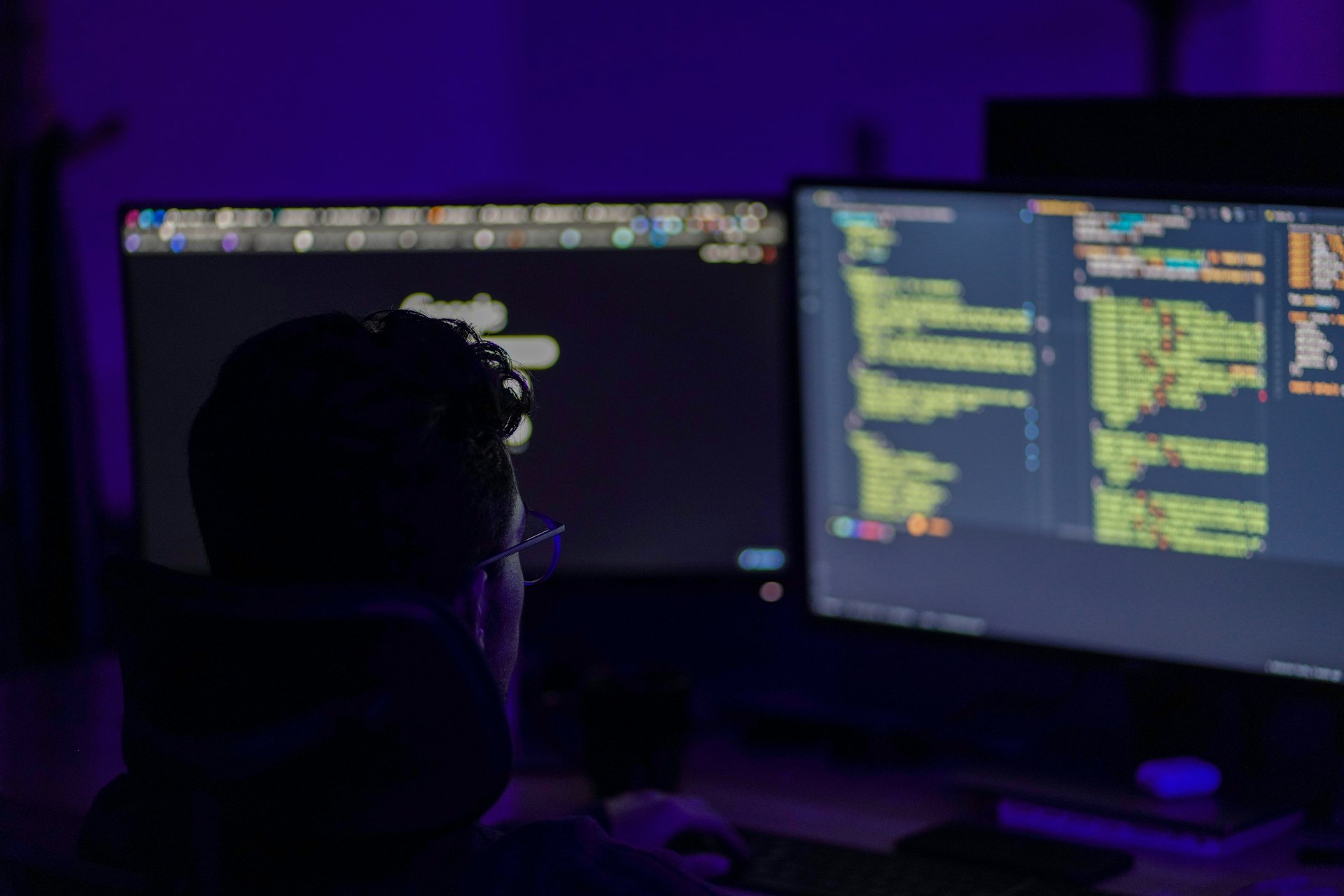Indie Game Development in 2025: The New Era of Innovation, AI, and Community Power

Photo by BoliviaInteligente on Unsplash
Introduction: The Indie Game Renaissance in 2025
Indie game development in 2025 is redefining the boundaries of creativity, technology, and business models. Empowered by advanced AI tools, accessible engines, and thriving online communities, independent studios and solo creators are producing games that rival, and often surpass, traditional AAA offerings in innovation and impact. This comprehensive guide explores the most important trends transforming the indie game sector, offering actionable insights and practical steps for developers aiming to thrive in this rapidly evolving environment.
AI-Powered Creation: Revolutionizing Development Workflows
Artificial intelligence has become fundamental for indie developers in 2025. AI tools are now standard across the entire pipeline-from procedural world-building and level design, to generating dialogue and automating animation. Leading engines like Unity and Unreal Engine integrate AI for faster prototyping and asset creation, allowing small teams to focus on core gameplay and narrative innovation instead of repetitive production tasks. Generative AI is also used for predictive analytics, helping developers understand player behavior and optimize monetization strategies [1] .
For example, teams leverage AI-driven character and environment generators to rapidly produce high-quality assets, freeing up time for polishing gameplay mechanics. Story-driven indies use large language models (LLMs) to create branching narratives and unique dialogue for each playthrough. However, developers must navigate ethical challenges, such as ensuring originality, transparency, and responsible use of AI-generated content [3] .
How to Access These Tools: Most modern game engines include built-in AI features or support integration with external AI platforms. Developers can experiment with open-source AI libraries or subscribe to commercial solutions tailored for game design. If you’re new to these technologies, consider searching for “AI game development tutorials” or joining online communities focused on AI in games for support and guidance.
Cross-Platform and Web Gaming: Expanding Reach and Community
In 2025, cross-platform compatibility is not just a bonus-it’s a necessity. Players expect games to work seamlessly across PC, consoles, and mobile devices, and indie developers are delivering. Cloud gaming and progressive web apps have further lowered technical barriers, enabling wider distribution without the need for major publishing deals [1] .

Photo by Kelly Sikkema on Unsplash
There is also a resurgence of browser-based and HTML5 games, giving new and veteran developers direct channels to audiences. These platforms allow for quick prototyping and community feedback, helping indies iterate faster and build loyal fanbases. Platforms like itch.io and community-driven spaces such as Roblox continue to democratize access, making it easier than ever to publish and monetize unique indie experiences [5] .
Practical Steps: To maximize reach, prioritize engines and frameworks that support multi-platform builds. Research distribution platforms that welcome indie titles, and participate in online forums where you can share early builds and gather feedback. If you’re interested in web-based gaming, search for “HTML5 game development” and explore communities like itch.io for best practices and publishing options.
Community-Driven Design and Social Gameplay
Player communities are central to indie game success in 2025. Social-first game design-where community input shapes features, balance, and content-is becoming the norm. Many successful indies use open development models, sharing progress updates, prototypes, and roadmaps with fans via Discord, Reddit, or Patreon. This transparency not only drives engagement but also provides invaluable feedback during development [1] .
Additionally, user-generated content (UGC) tools empower players to create, share, and remix levels or assets, giving games a much longer lifespan. Games that foster active modding communities often see higher retention and organic growth.
Implementation Guidance: Consider setting up a Discord server or subreddit for your project to gather feedback and build a core fanbase. Use in-game tools to enable UGC, or provide modding support where feasible. Regularly engage with your community through AMAs, playtests, and developer diaries to foster a sense of ownership among players.
Funding, Monetization, and Indie Sustainability
Indie games in 2025 are funded through a variety of channels, including crowdfunding platforms, early access releases, and small investment collectives. Crowdfunding remains popular, with platforms like Kickstarter and Patreon helping teams secure resources while building an initial player base. Early access models allow developers to generate revenue and feedback before full release [2] .
Monetization strategies are shifting towards player-friendly models. Many indies prioritize fair pricing, cosmetic microtransactions, and optional DLCs over aggressive monetization practices. Transparency about funding and updates is crucial for maintaining player trust.
How to Access Funding: To seek crowdfunding, prepare a compelling project pitch, including concept art, gameplay demos, and a clear development roadmap. Research successful campaigns for best practices. If you need investment, consider joining game incubators or accelerators, or searching for “indie game funding programs 2025” to identify new opportunities. Remember to maintain regular communication with backers to build confidence in your project’s progress.
Emergence of New Genres, Art Styles, and Narrative Techniques
Indie games are leading innovation in genre blending, narrative experimentation, and visual presentation. Developers are unafraid to tackle niche genres, experimental mechanics, and unconventional art styles-often filling gaps left by risk-averse AAA studios. Narrative-driven experiences, branching storylines, and games as artistic expression are increasingly prevalent [2] .
For instance, many 2025 releases feature hand-drawn or pixel art aesthetics, interactive fiction, or mechanics that blur the line between player and storyteller. Developers are also exploring accessibility features and inclusive design to reach broader audiences.
Steps for Implementation: Study recent indie successes for inspiration on narrative, gameplay, and visual style. Participate in game jams to experiment with new ideas in low-risk environments. If accessibility is a priority, search for guidelines from organizations like the IGDA or consult with accessibility consultants to ensure your game is inclusive.
Technical and Production Challenges: Solutions and Alternatives
Despite these opportunities, indie developers face challenges such as rising production costs, discoverability issues, and increased competition. Build sizes are growing, and expectations for polish and content are higher than ever. Time and resource management, especially for small teams, remains a significant hurdle [4] .
Solutions include leveraging AI and procedural generation to streamline asset creation, prioritizing scope management to avoid feature creep, and focusing on unique selling points rather than chasing trends. Alternative approaches include collaborating with other indies, outsourcing specific tasks, or joining collective publishing platforms to share marketing and distribution resources.
Practical Advice: Plan your project scope carefully, identify must-have features versus nice-to-haves, and use project management tools to organize tasks. Consider reaching out to indie collectives or online development groups for collaboration and resource sharing. For marketing, focus on authentic storytelling and community engagement rather than paid advertising alone.
Getting Started: Step-by-Step for Aspiring Indie Developers
Whether you’re an aspiring creator or a small studio looking to scale, here’s a step-by-step approach to breaking into indie game development in 2025:
- Define Your Vision: Start with a unique concept or gameplay mechanic that excites you. Document your ideas in detail.
- Select Your Tools: Evaluate engines like Unity, Unreal Engine, or Godot, and explore AI integration options. Many engines offer free or low-cost licenses for indies.
- Build a Prototype: Develop a minimum viable product (MVP) to test your core gameplay. Use AI and procedural tools to accelerate asset creation.
- Engage Your Community: Share progress on social media, Discord, or Reddit. Gather feedback early and adjust your design based on user input.
- Plan Your Funding: Research crowdfunding, early access, or small investment options. Prepare a pitch and development roadmap.
- Iterate and Polish: Refine your game based on feedback and analytics. Focus on accessibility and unique features.
- Launch and Support: Release your game on multiple platforms where possible. Continue engaging your player base through updates, UGC, and community events.
If you need guidance at any step, search for “indie game development resources 2025” or join online forums and communities dedicated to indie gaming. Many organizations and industry events, such as the Game Developers Conference (GDC), offer seminars, workshops, and networking opportunities to help you succeed [3] .
Key Takeaways for 2025
Indie game development in 2025 is defined by bold creativity, technical empowerment, and deep community engagement. By embracing AI tools, cross-platform design, and transparent development practices, indie creators can stand out in a crowded market. While challenges remain, the tools and resources available today make it possible for passionate individuals and small teams to launch groundbreaking games and connect with global audiences.
If you’re ready to start your journey, begin by identifying your core idea, selecting the right tools, and building your community from day one. The future of indie games is bright-and yours to shape.
References
- [1] Whimsy Games (2025). Top Game Development Trends in 2025: What Studios Should Watch.
- [2] Meshy AI (2025). Indie Game Development: A Comprehensive Guide for 2025.
- [3] Game Developers Conference (2025). Top Game Developer Trends Heading Into GDC 2025.
- [4] Code Monkey (2025). The 5 MUST KNOW trends for Game Development in 2025 (YouTube Video).
- [5] Exploding Topics (2025). 7 Huge Gaming Industry Trends (2025 & 2026).



